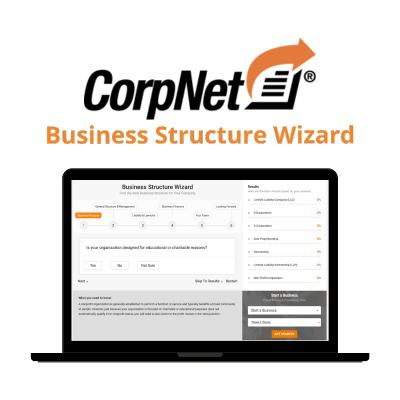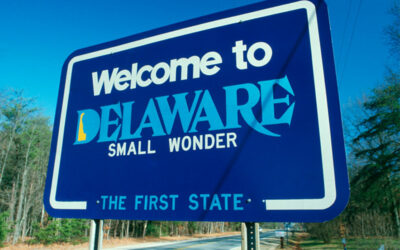A large range of businesses operate as Sole Proprietorships – a type of business entity that has one person, or a married couple, as its owner and operator. In fact, there are more Sole Proprietorships in the United States than any other type of business structure, including Limited Liability Companies (LLCs) or C Corporations.
Sole Proprietorships are popular because they’re easy and inexpensive to get started. If someone hires you to bake their wedding cake, tend to their landscaping, or tutor their child in math, you’ve, by default, established a Sole Proprietorship.
There’s no need to register a Sole Proprietorship with the state, or to file an annual report or pay the associated fees. You’ll continue to use a personal tax return and can use your Social Security number to file your income taxes, eliminating the need for an employer identification number. You’ll probably need to make quarterly estimated tax payments, however, and you’ll be responsible for paying self-employment taxes – a combination of Social Security and Medicare taxes which in 2025 totals 15.3% of earnings.
Many entrepreneurs form a Sole Proprietorship because they want a business they can control, without the benefit of partners or management. Sometimes called Solopreneurs, they enjoy the independence of owning, operating, and managing a business on their own terms.
Types of Businesses Who Opt for Sole Proprietorships
Many types of businesses work well as Sole Proprietorships, but some are better suited to this form of business ownership than others. As a Sole Proprietor, there is no legal separation between you and your business. That means you’re responsible for all financial and liability obligations, and if you get sued or can’t pay your bills, your personal assets could be at risk.
For that reason, businesses that have low risk potential are better candidates for Sole Proprietorships than higher-risk businesses, such as construction or health care. Before you start any type of business, however, you should learn what licenses, permits, or certifications may be required by your state or local municipality. Also, consider what type of insurance you may need to protect you and your business.
Let’s look at some jobs that lend themselves nicely to being run as Sole Proprietorships:
- Caterer – Many people enjoy entertaining but don’t like all the food preparation it entails. If you’ve got culinary skills and enjoy working with people, a catering service that provides food for special events might be a good fit for a Sole Proprietorship. You will, however, need a license or permit and insurance.
- Housekeeper – Cleaning other people’s homes can be a profitable business. According to the home services website, Angi, the average cost of house cleaning services ranges from $118 to $236 per visit. You might consider building up a client list as a Sole Proprietor and converting the business to an LLC when you need to hire employees.
- Freelance writer – The work of a freelance writer is considered to have a low risk for liability, and the job is normally flexible and varied. Writers may cover a wide variety of topics and writing formats or specialize in just one specialty area or form of writing. A freelance writer may work in another field in addition to writing until they’ve established enough clients to assure steady work.
- Tutor – Many parents hire tutors to help their children with school subjects they find difficult, and some adults may also look for tutors to learn a language or skill. A tutor may help clients in their homes, a public setting such as a library, or in a virtual setting. Tutoring also is considered low risk and is conducive to a Sole Proprietorship.
- Consultant – Someone who is skilled in business, IT, finance, marketing, or another area may work as a consultant to offer advice to individuals or businesses. A license or permit is likely to be required, but consultants can easily operate as Sole Proprietors.
- Baker – Like a caterer, a baker can work as a Sole Proprietor, at least until the business grows and you want to add a location or hire several employees, and an LLC or Corporation makes more sense. If you want to call the bakery something other than your legal name, you’d need to obtain a DBA, or “doing business as.”
- Personal trainer – Some personal trainers work for gyms, but others provide training services as Sole Proprietors, working out their home or their clients’ homes. You’d need good liability insurance to protect you in the event of some sort of training accident.
- Landscaper – A Sole Proprietor can contract directly with clients to provide a range of landscaping services. A client’s home insurance will normally cover any potential liability, such as property damage, although a landscaper also should have insurance.
- Graphic designer – Like a freelance writer, a graphic designer working as a Sole Proprietor faces little risk for liability. Graphic designers are in demand as digital marketing continues to expand, and may provide designs for websites, marketing materials, and other visual content.
- Photographer – Professional photographers can run their businesses as Sole Proprietorships, offering services such as portraits, business events, weddings, or commercial photography.
- Information technology expert – A Sole Proprietorship can be a good business structure for someone who offers support, website development, or other IT services. Many entrepreneurs who are not overly technical savvy sometimes require help with technical issues and may be likely to hire someone who works on their own.
- Event planner – If you’re detailed oriented and love planning special occasions, you may be able to establish yourself as an event planner. You’re likely to need some type of permit or license, and you should make sure you have insurance to cover any accidents or mishaps that could occur.
While that is by no means an exhaustive list of jobs commonly run by Sole Proprietors, I hope it gives you an idea of the range of services they offer. Many entrepreneurs begin as Sole Proprietors and then change the business structure as their company grows and they want to hire employees, limit their personal liability, or expand the business.
Sole Proprietorships Are Not for Everyone
While there’s a place for Sole Proprietorships, there are substantial risks with this business structure, and I would urge you to consider carefully whether it is right for you.
Along with the serious potential for personal liability if you get sued or accumulate debt you can’t repay, a Sole Proprietorship also carries the disadvantages of difficulty in obtaining loans or other financing and an inability to add partners without changing your business structure.
Also, you may find it harder to find clients than if your business was an LLC, as some people associate Sole Proprietorships with a lack of professionalism or dependability. There’s no way to transfer a Sole Proprietorship to another person, which could make it difficult to sell the business.
I’d urge you to consider carefully and explore all the advantages and disadvantages of different business entities before deciding what’s right for you. While forming an LLC takes some time and effort, you’d benefit from a business entity that provides personal liability protection and other business benefits.

Choosing a business structure can be a tough decision for the new business owner. CorpNet wants to make the process easier.
This free, online tool helps small business owners navigate the process of picking the right business structure for their new business.





